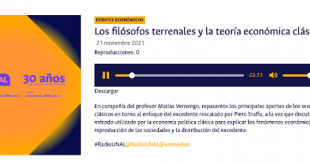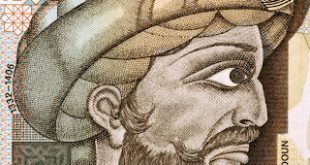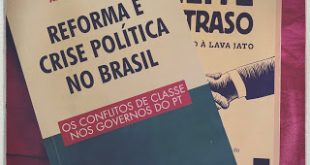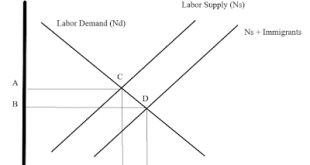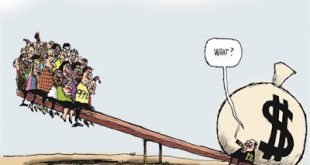My paper, in Italian, which was a modified version of a talk last year, has been published in Moneta e Credito, and is available for download here.
Read More »Part Two of the interview at Radio UNAL
More on the same issues, with a discussion of Piero Sraffa and the surplus approach (this week there will be an event on the legacy of Pierangelo Garegnani). In Spanish again.
Read More »Sfide eterodosse
La traduzione della recensione su Brave New Europe (vedi post precedente) ora su Insight. Grazie Mathew Rose e Antonio Lettieri. Sfide eterodosse in economia di Sergio Cesaratto Il libro fornisce gli strumenti necessari per comprendere l'attuale crisi in cui sono precipitate l'UE e l'Eurozona. Non avrei mai pensato di descrivere un libro di economia come “una lettura deliziosa”, ma “Heterodox Challenges...
Read More »Economics without Gaps: on Ibn Khaldun and non-Western traditions in the history of ideas
Ibn Khaldun, Arab scholarA piece* from a few years ago, has again become somewhat popular and it has been making the rounds. It suggests that the Arab scholar Ibn Khaldun developed the ideas of classical political economics in the late XIV century, about half a millennia before Adam Smith, often seen as the father of classical economics, and of modern economics. Some would suggest that Khaldun was the real father of economics (or stepfather in the first essay on top). To a great extent, the...
Read More »Poor Richard Goes to London: The Economic Ideas of Benjamin Franklin
[embedded content]Another episode of my podcast on The Worldly Philosophers Go to Washington: From Alexander Hamilton to Janet Yellen. The ideas of early classical political economists and their influence in America are analyzed in this episode. The role of Sir William Petty’s ideas in the development of Benjamin Franklin’s early policy proposals is discussed. It is noted how Franklin had a firm grasp of the main economic theories of his time, even before some of these ideas were fully...
Read More »Class conflict, Economic Development and the Brazilian Crisis
Last summer readings The issue of class conflict and its relation to accumulation of capital was central for classical political economists of the surplus approach. That tradition has survived in political science mostly through the work of Marxist authors. And in many recent discussions of the Brazilian crisis, that started with the 2013 protests, the 2015 turn in economic policy (the so-called New Economic Matrix), the 2016 mediatic/parliamentary coup against Dilma, and the 2018...
Read More »Surplus approach and economic anthropology. Un nuovo WP
Heterodox economics and economic anthropology: reflections prompted by two books Working paper N. 807 Luglio 2019 Sergio Cesaratto DEPS, USienaAbstract This paper has been long ago inspired by Jared Diamond (1997) and, in particular, by his extensive use of the concept of economic surplus as the key to the development of civilization. Unfortunately, Diamond does not even mention the origin of the concept in classical and pre-classical economics. Moreover, Diamond does not pay...
Read More »A primer on the economics of immigration: a surplus approach perspective
This is definitely not my topic of research. So you may very well ask why would I venture to wrote about it, beyond the obvious reason that it is probably one of the most debated issues these days in the US, with the government shutdown being related to the now infamous wall. I am myself twice an immigrant, I descend from immigrants (my parents returned to their country of origin, but had emigrated, and on my mother side my grandfather was also an immigrant, and the same goes on my father's...
Read More »Hyperinflation and inequality
I'm still reading The Great Leveler: Violence and the History of Inequality from the Stone Age to the Twenty-First Century, which is fun, well-written and in my view less controversial than what most reviews have suggested. Yes, inequality tends to fall mostly by violent means during periods of crisis. Note, also, that Walter Scheidel uses in this book the concept of surplus, and as noted earlier here (or here and here) before is part of this broader group of social scientists that still...
Read More » Heterodox
Heterodox

